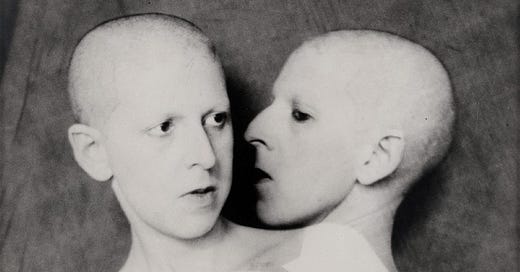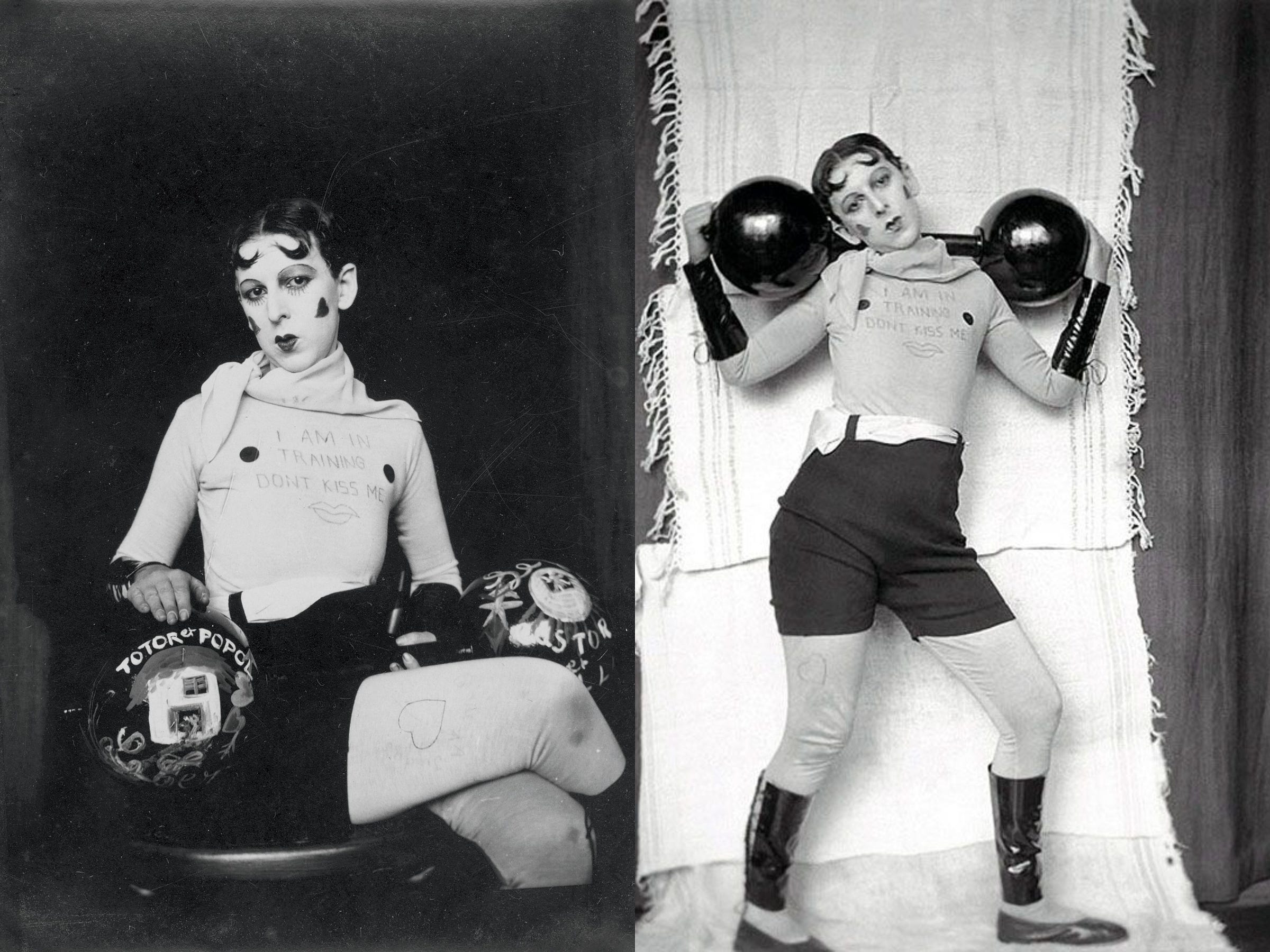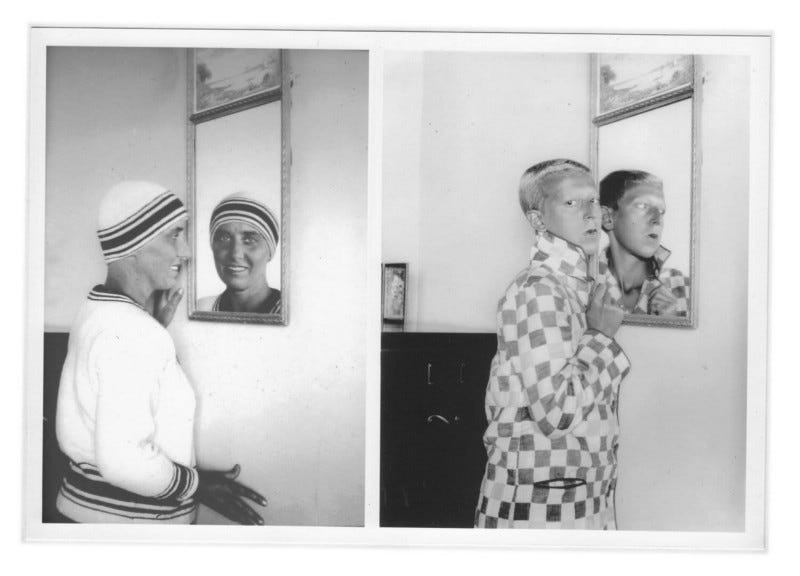How a Lesbian Couple Insulted Nazis With Their Paper Bullets
Edition #18 - The missing page from World War II diaries
Hi friends,
Thank you for subscribing and supporting my newsletter. Both free and paid subscriptions are available. The best way to support my work is through a paid subscription.
How a Lesbian Couple Insulted Nazis With Their Paper Bullets
Do you know about the “power couple” who resisted the Nazi regime through non-combative means?
They created leaflets and pamphlets, insulted Hitler, and provoked the troops. They devised their own PSYOPS campaign known as “paper bullets” and slipped notes into the soldier’s pockets or placed them onto newsstand magazines.
And what if I tell you that the power couple was French women, Lucy Schwob and Suzanne Malherbe, who —
resisted social norms.
led an unconventional life.
challenged the Nazi regime through their non-violent techniques.
defied sexuality norms and were romantically involved.
were gender-benders way before these terms came into existence.
Come, let’s explore the missing page from World War II diaries and celebrate these two women and their courage.
Who were Lucy Schwob and Suzanne Malherbe?
When society considered men to be men and women to be women, Schwob chose to be gender ambiguous and called herself “Claude Cahun”.
This name is important because Claude could either be a man or a woman in French.
Cahun was a French surrealist photographer and a creative artist. Sometimes she would shave her head, become bald and confront the audience with an uncompromising gaze with a caption reading:
“Que me veux-tu?” meaning “What do you want from me?”
And other times, she would wear a nude bodysuit with shorts. Legs daintily crossed in one pose and butt slightly titled in another. Tall boots and leather wrist bracers, holding a barbell. She would pout, put black stickers on her nipples, and hand-written the phrase “I am in training, don’t kiss me.”
Of course, we can’t take our eyes off her stormy stare.
Suzanne Malherbe was Cahun’s step-sister, and she used the alter ego, Marcel Moore.
Both of them were romantically involved and produced their artistic pursuits together.
These Parisian women challenged the concept of “strict gender binary” through their photographs and illustrations.
Of course, their work was labeled as “Degenerate art” by the Nazis.
Their non-violent anti-Nazi campaign
In 1937, when Paris was under Nazi attack, Cahun and Moore decided to move to Jersey, an English Channel island, where they bought a house.
When the Nazis rolled over France in 1940 and attacked Jersey, they tried to fight back.
Cahun and Moore started writing messages on small bits of paper, sometimes toilet paper under the name of an unhappy soldier that they called “the soldier with no name” — that the war was lost and the German troops should look out for themselves.
They called Hitler a vampire and slipped these paper bullets in book stores, cafes, magazines, and sometimes in soldiers’ pockets.
One of their daring early morning capers was mounting a banner in a church where many soldiers worshipped that proclaimed — “Jesus is Great — But Hitler is Greater. Because Jesus Died for People — But People Die for Hitler.”
All while the Nazis believed that there was a traitor in their troop.
Lastly
But in 1944, Cahun and Moore were hunted by the secret field police, imprisoned, and a formal trial was conducted.
Ultimately, they survived, but their story got lost.
In the 1990s, art historians and the LGBTQ community dug up this fascinating tale and brought to light the courage and tenacity of Schwob and Malherbe.
Paper Bullets: Two Artists Who Risked Their Lives to Defy the Nazis by Jeffrey H. Jackson narrates these two women’s audacity and mental fortitude.







